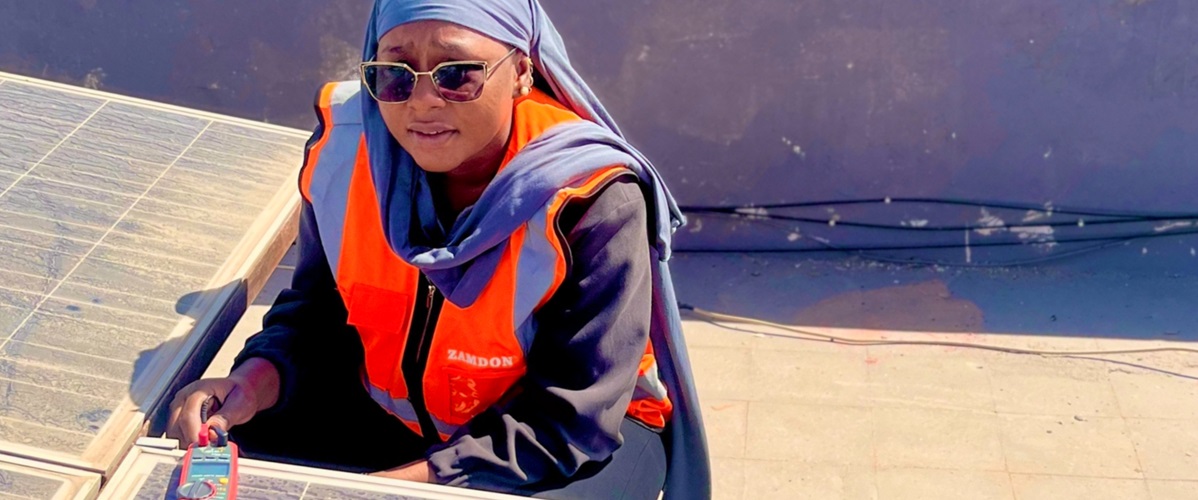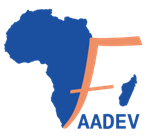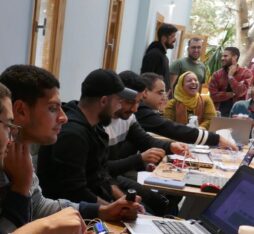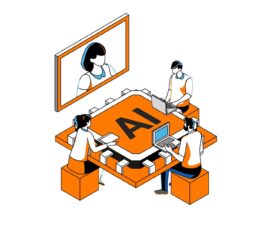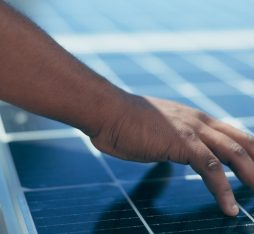• A recent study on the challenges and opportunities for boosting their involvement improved knowledge of the solar energy ecosystem.
• As a partner of the study, Orange reaffirmed its commitments to inclusion, gender equality and women’s entrepreneurship in Africa.
Choosing to study the solar energy sector in Senegal stems from the largely untapped potential of this resource on the African continent, which undeniably sees some of the highest levels of sunshine in the world. With 60% of the world’s solar resources in Africa, only about 1% of this potential is used.
It would be beneficial to promote mentoring programmes led by women, especially by female leaders
Transitioning to a low-carbon economy is crucial for Senegal, which aspires to become a regional leader in renewable energy. With an ambitious goal of reaching 40% renewable energy in its energy mix by 2030, the country is positioning itself as a key player in the fight against climate change. However, women’s involvement in this sector remains limited, hampered in particular by socio-cultural and economic barriers. In the last quarter of 2024, a field study was conducted with women and institutional professionals in the solar energy sector to identify the challenges, factors and opportunities involved in increasing female presence in renewable energy jobs.
Despite many gender equality initiatives in Senegal over several decades, women face significant difficulties in accessing training and jobs in the renewable energy sector. However, increasing their involvement in this growing sector is a key factor for society. Training in these technologies will allow women to become professionals in the sector and to use these new energies to develop income-generating activities, therefore promoting their country’s socio-economic development.
Structural obstacles to solar development in Senegal
To start with, the study highlighted a set of structural problems related to the renewable energy sector in Senegal. It is difficult for solar energy companies to develop in Senegal due to stagnant demand, notably related to expensive materials and low customer confidence due to unreliable installations. The sector also suffers from a shortage of qualified professionals able to install, and particularly maintain, solar energy systems.
Local companies are rarely selected during national tenders and are most often subcontracted by large foreign groups, further limiting their development and, consequently, staffing.
Furthermore, Senegal offers relatively few incentive-based government renewable energy policies, restricting the development of the sector. Finally, banks are reluctant to invest in renewable energy projects due to the perceived high risk and the lack of guarantees.
For all these reasons, the renewable energy sector in Senegal is not reaching its expected potential, making it difficult for young people as a whole to get involved, especially young women.
Obstacles to remove to improve women’s involvement in the sector
Senegalese women face challenges at three key points on their journey to working in the solar energy sector. But before that, it is important to remember that gender stereotypes are still deeply embedded in Senegalese society, limiting choices and opportunities for women when it comes to studying and their career. Family pressures hinder access to education and later to employment, by burdening them with almost all the responsibility for domestic and household tasks, despite the legal frameworks put in place in the country to promote gender equality.
From school, young girls face difficulties in finding existing education opportunities, but also and more generally, they shy away from technical and scientific programmes at secondary school, as these are perceived to be for men. The lack of female role models in these sectors and professions makes it difficult for these young girls to picture themselves in these roles. It would be beneficial to promote mentoring programmes led by women, especially those who are leaders and or have inspiring stories. This would encourage society to accept the feminisation of these technical professions.
The significant gap between the skills acquired during training, which are essentially theoretical, and the expectations of employers who are very much oriented towards practical experience, was also a common theme for study participants, making integration particularly difficult for these young girls. This point is reinforced by the strongly rooted socio-cultural practices in Senegal, which explain, for example, why nearly 30% of girls are married before the age of 18. For them, marriage usually means moving in with their in-laws and being very involved in the household tasks, which stops them from having any other personal commitments outside the home: “This is a huge obstacle for women in Senegal because when you’re married, you live with your in-laws. Sometimes it’s a big family. You have to prepare meals, clean up, be a housewife, attend big celebrations, Tabaski, Korité, all that. You have to.” (Fatima N., seeking employment, 33 years old).
Finally, working conditions—especially on construction sites—can make staying in employment difficult, particularly in the renewable energy sector. Due to the travel involved, close interaction with men and the weight of the materials, these jobs are mostly designated as being reserved for men.
These different factors combined create an environment where women’s involvement remains a challenge, despite what they could bring to this high-potential sector. The study showed that men and women working together on construction sites, allocating tasks adapted to their own abilities, is beneficial for companies’ brand images. Women are particularly careful when preparing installations and consider aesthetics when wiring equipment.
Women’s involvement in the renewable energy sector represents an opportunity not only for their empowerment, but also for Senegal’s socio-economic development.
Joint efforts by the government, businesses and civil society are needed to create an environment conducive to their professional development, ensuring that renewable energy is exploited to its full potential for the benefit of society as a whole.
The study enabled the proposal of a set of recommendations both in terms of education, such as offering mobile training in rural areas to minimise travel for young women, communication with schools to highlight the training available, or in terms of social and family policies, by developing state-approved childcare facilities at accessible rates.
To support the development of these recommendations, it would be useful to compare the qualitative data collected in this study with reliable quantitative data. Similarly, developing new economic models, focused on both inclusion and sustainability (quality labelling of equipment and installation and maintenance guarantees), is essential to ensuring the success of this transition and to maximise the benefits for the Senegalese society.
Methodology :
For this qualitative study, 35 semi-structured interviews, lasting 45 minutes on average, were conducted in French with women who have completed training in the renewable energy field or are currently active in this sector of employment (employed or job seeking). Interviews were conducted face-to-face or remotely via WhatsApp. In parallel with this first series of interviews, 11 in-depth interviews with institutions within this ecosystem were conducted in order to gather additional perspectives on the subject. For example, we met with representatives from the Observatoire national de la parité (Senegalese national parity observatory), the Centre européen de formation en énergie renouvelable (European renewable energy training centre), the Agence pour l’économie et la maîtrise de l’énergie (Senegalese Agency for the Economy and Energy Management), the Agence nationale pour les énergies renouvelables (Senegalese National Agency for Renewable Energies) and Sud Solar System (a company).
Context of the study
The study was conducted in partnership with FAADEV, a Senegalese non-government organisation born from a social and feminist desire to promote women as a driving force for sustainable economic growth and development in Africa. The study was funded by ODI Global, a leading British think tank.
Read more :
The study report is available in French at: https://www.alignplatform.org/sites/default/files/2025-04/odi-strengthenwomensparticipation-senegal.pdf

